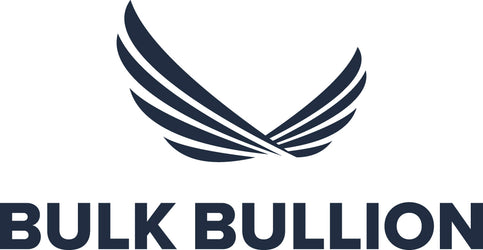
The End of the Petrodollar: A New Era in Global Economics? | Bulk Bullion
In the realm of international finance, few topics have generated as much speculation and debate in recent years as the fate of the petrodollar. For decades, this system has been the linchpin of global economic stability, with the United States dollar serving as the dominant currency for oil transactions worldwide. However, signs of change are emerging on the horizon, prompting analysts to ponder whether we are witnessing the beginning of the end for the petrodollar era.
Understanding the Petrodollar System
The petrodollar refers to the system established in the 1970s where oil-producing countries agreed to price oil exclusively in U.S. dollars. This agreement, particularly with Saudi Arabia, solidified the U.S. dollar as the global reserve currency, ensuring its demand and dominance in international trade. In exchange for pricing oil in dollars, these countries received security guarantees and economic support from the United States. The petrodollar system facilitated global demand for the U.S. dollar, bolstering its status as the primary currency for international transactions and contributing significantly to U.S. economic influence and stability in global financial markets.

Challenges to the Petrodollar Dominance
-
Geopolitical Shifts
Recent geopolitical developments have raised doubts about the stability of the petrodollar system. As countries like China and Russia seek to reduce their dependence on the dollar and enhance their economic influence, they are exploring alternatives to settle energy transactions, such as using their own currencies or digital currencies.
-
Emergence of Digital Currencies
The rise of cryptocurrencies and central bank digital currencies (CBDCs) presents a potential challenge to the petrodollar. These digital assets offer faster and cheaper cross-border transactions, appealing to countries looking to bypass traditional financial systems dominated by the U.S. dollar.
-
Economic Uncertainty
Economic factors, such as inflation in the United States and its impact on the dollar's value, also contribute to the uncertainty surrounding the petrodollar. Countries holding large reserves of U.S. dollars may seek diversification to hedge against currency devaluation risks.
Implications for Global Economics
-
Shift in Economic Power
A decline in the petrodollar's dominance could lead to a redistribution of economic power globally. Countries diversifying away from the dollar may enhance their economic sovereignty and reduce their vulnerability to U.S. economic policies.
-
Market Volatility
The transition away from the petrodollar could introduce volatility into global financial markets, as investors and institutions adjust to new currency dynamics and pricing mechanisms for commodities like oil.
-
Impact on U.S. Economy
For the United States, a diminishing role of the petrodollar could pose challenges to its economic and geopolitical influence. It may lead to higher borrowing costs and a potential decline in the dollar's value relative to other currencies.
The Impact on Precious Metals
The petrodollar system has significant impacts on precious metals, primarily gold. Here’s how:
Inverse Relationship
Historically, there's an inverse relationship between the U.S. dollar and gold prices. When the dollar strengthens (often due to its role as the petrodollar), gold prices tend to weaken, and vice versa. This relationship is because a stronger dollar makes gold more expensive for holders of other currencies, reducing demand.
Dollar Hegemony
The petrodollar's dominance reinforces the U.S. dollar as the world's primary reserve currency. This status encourages central banks and investors to hold dollars as reserves rather than precious metals like gold, affecting gold's demand and pricing.
Market Sentiment
Changes in the petrodollar system or shifts away from dollar-denominated oil transactions can influence market sentiment towards the dollar and subsequently impact gold prices. If confidence in the dollar weakens, investors may turn to gold as a hedge against currency devaluation and economic uncertainty.
Geopolitical Factors
Geopolitical tensions or conflicts involving major oil-producing nations can affect both oil prices and the dollar, influencing gold prices as investors seek safe-haven assets like gold during periods of instability.
In essence, while the petrodollar system primarily affects the U.S. dollar's strength and stability, its implications ripple through global financial markets, including those for precious metals like gold, influencing demand, prices, and market dynamics.


Leave a comment